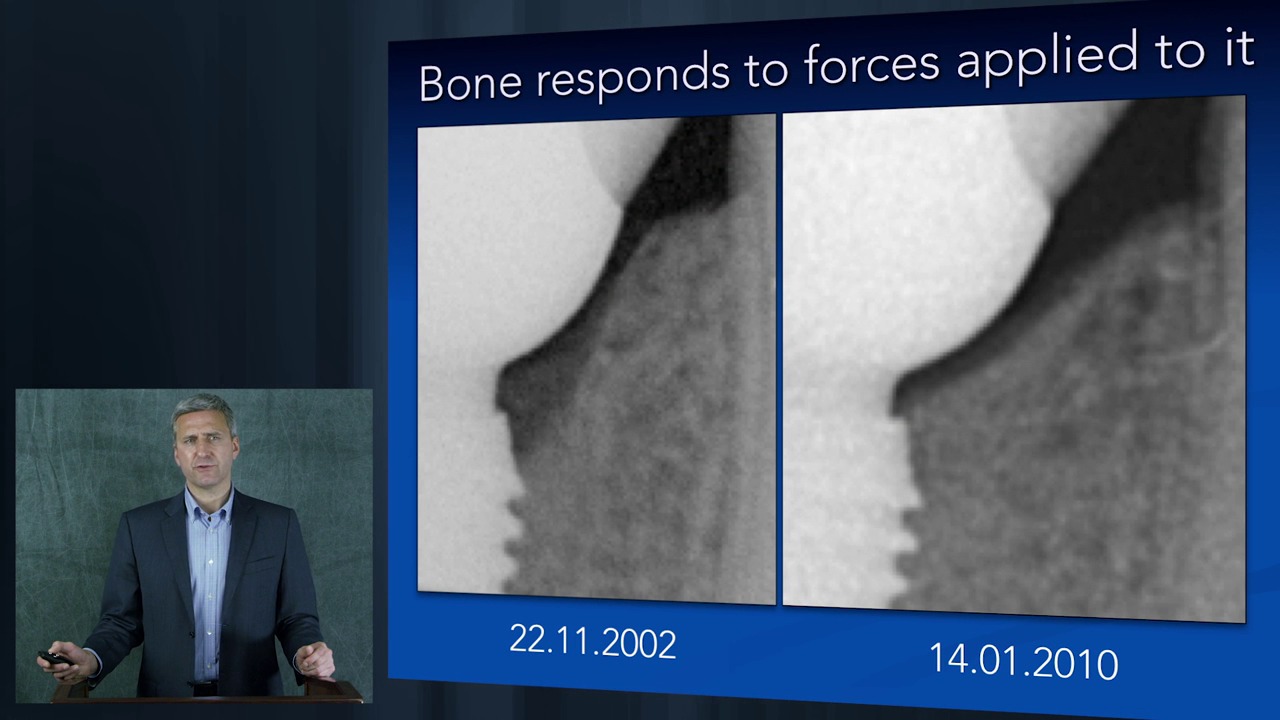
|
SHORT® Dental Implants: Does Size Really Matter? [HD]
ALL-NEW AND UPDATED FOR 2016! In this video, Dr. Bill Schaeffer of London discusses short implants, why they work, and the unique advantages they offer to the clinician. Dr. Schaeffer also conducts a review of literature and discusses his first-hand experiences with short dental implants. |
|---|---|
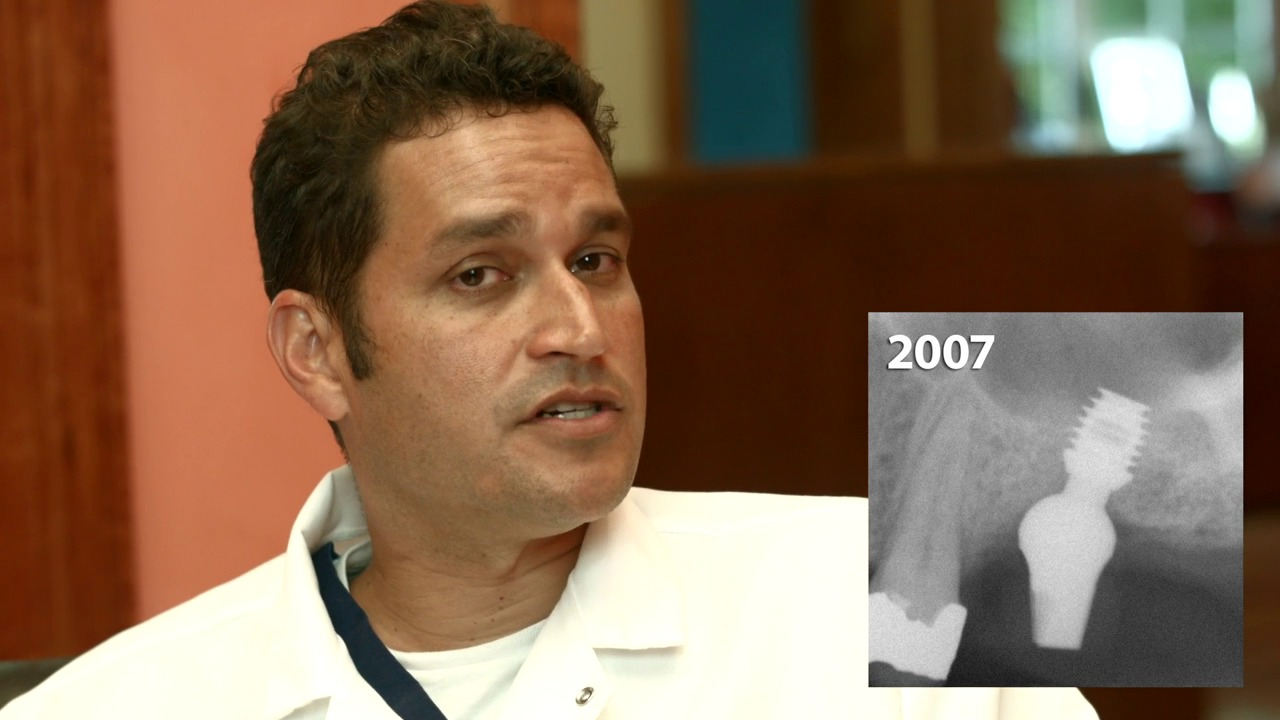
|
The Implant Book was Wrong, Longer is Not Better
In this video, Dr. Rainier Urdaneta discusses how his practice of implant dentistry changed over the years, once he recognized the merits of using 5.0 and 6.0mm short implants. He was taught to use long implants, but now knows the use of short implants is better. Short implants can avoid the need for bone grafting procedures and their associated morbity, expense, and pain. |
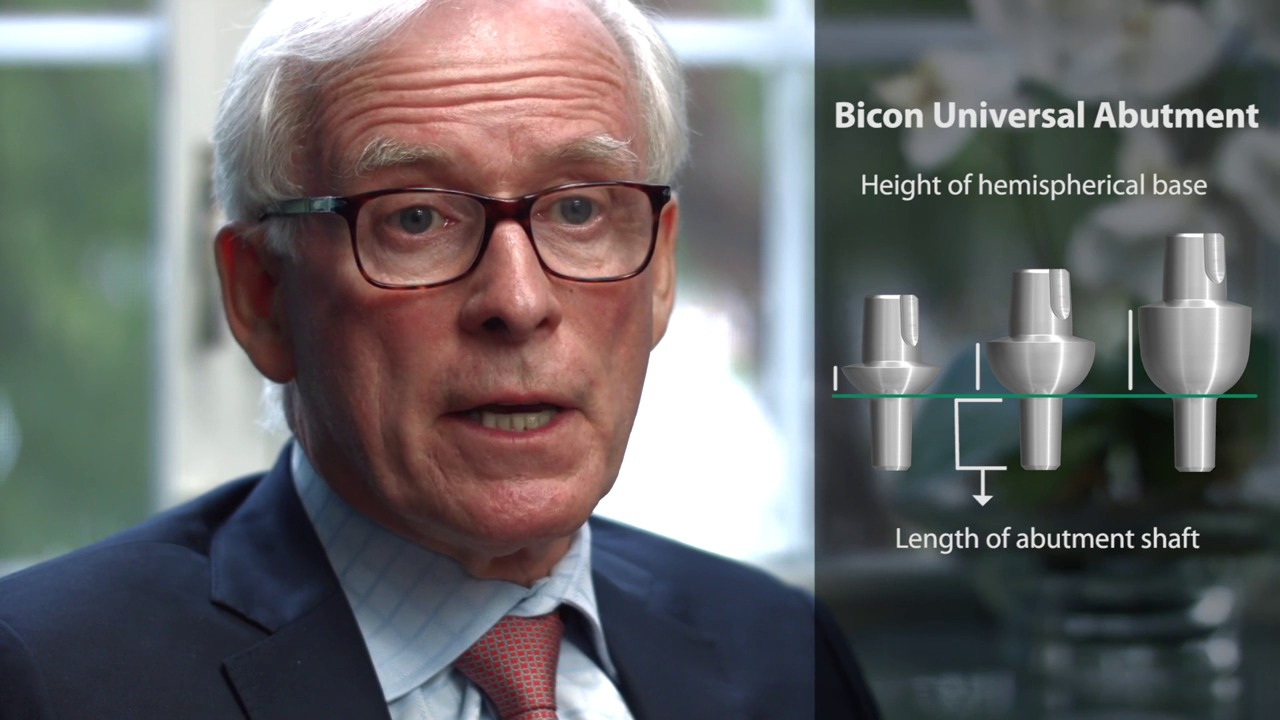
|
How Bicon Abutments Can Affect Bone Gain
In this video, Dr. Vincent J. Morgan discusses how both the diameter of the hemispherical base and the length of the abutment shaft are factors that can impact bone levels. He goes on to explain how this knowledge was then incorporated into Bicon’s Universal Abutment System. |
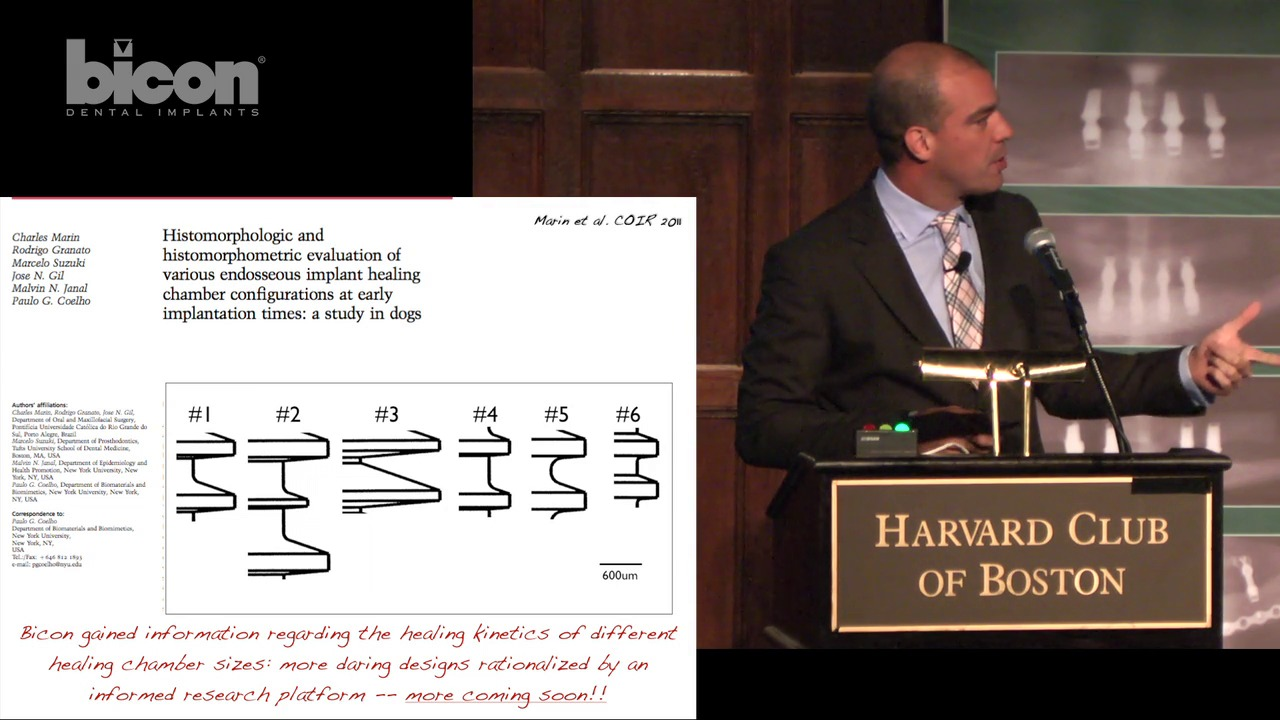
|
Implant Design and Related Bone Response
In this presentation, Dr. Coelho will present his research and perspective on the factors attributing to the histology and findings of bone gain around fin and plateau designed implant systems. Paulo G. Coelho, DDS, Ph.D |
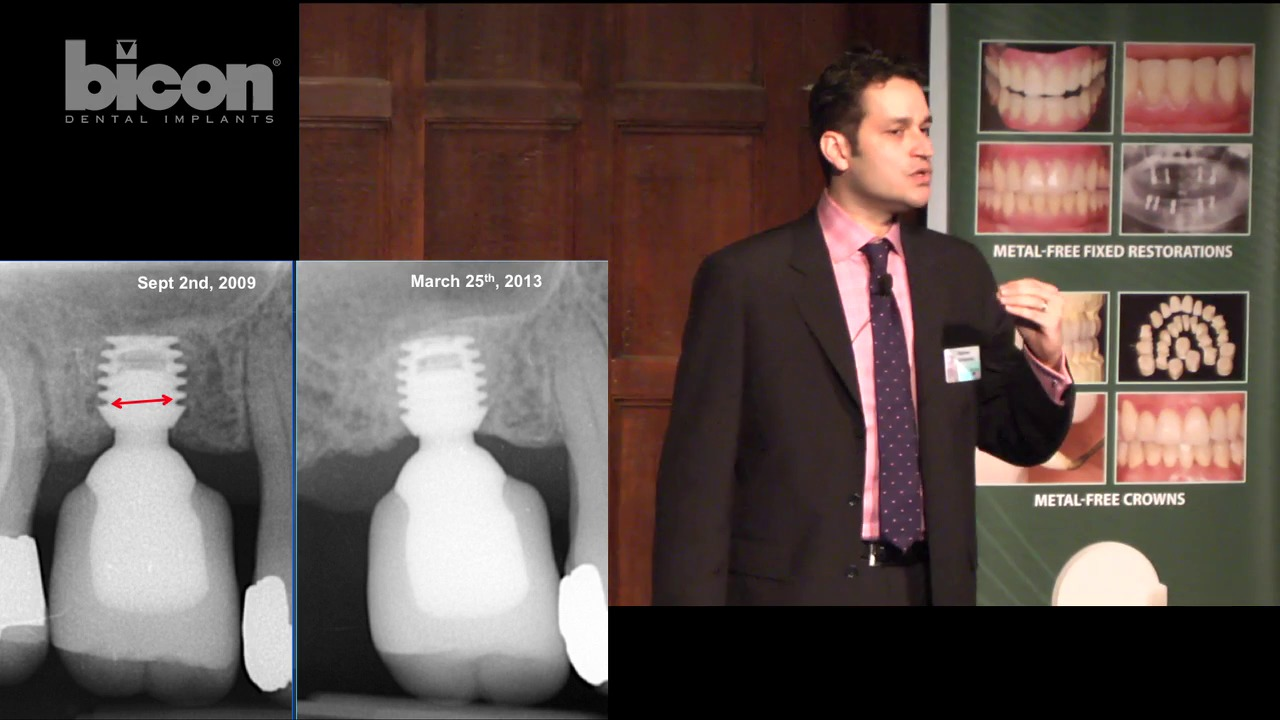
|
Clinical Evidence of the Bicon Implant
In this lecture, Dr. Urdaneta will present a series of clinical cases showing the positive effects of the Bicon locking taper implant and its use in a combination of therapies to increase bone and improve patient acceptance. Rainier Urdaneta, DMD |
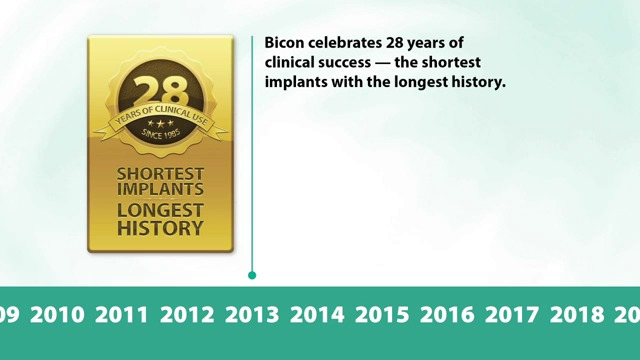
|
The History of The Bicon Design
The Bicon System has its origins dating back to 1968. Initial research was conducted at Battelle Memorial Institute in Columbus, Ohio by Thomas Driskell. The original implant design of Mr. Driskell used high density aluminum oxide as the implant material. In 1981, Driskell introduced an implant named Titanodont which was made from titanium alloy. Then, in 1985, he perfected his titanium implant design by patenting the DB Precision Implant, which is known today as the Bicon Dental Implant System. Whether Driskell knew it or not at the time he developed this implant system, his design coupled with the clinical support of Bicon has come to revolutionize implant dentistry by offering the innovations of SHORT® Implants, Integrated Abutment Crowns™, SynthoGraft™, and TRINIA™ and more. |
Bicon Restorative Techniques
The Bicon Restorative Techniques Video is intended to provide clinicians and their staff with detailed descriptions, explanations, and demonstrations depicting numerous restorative procedures of the Bicon Dental Implant System. |
|
Introduction to Bicon SHORT® Implants
This video provides an introduction to Bicon SHORT® Implants, their history, the science behind their design, and how they can maximize implant placement possibilities and minimize the need for grafting procedures. |
|
Introduction to Bicon Dental Implants
This introductory video should give the viewer a good history of the Bicon dental implant design and highlight some of its unique benefits and capabilities — including SHORT® Implants, superior aesthetics, and impressive bone maintenance. |
|
A Screwless and Cementless Technique for Restoration of Single Tooth Implants: A Retrospective Cohort Study
Dr. Rainier UrdanetaHarvard University |